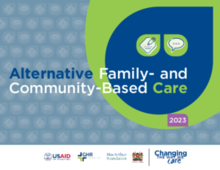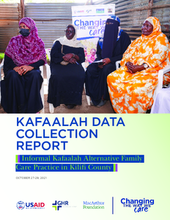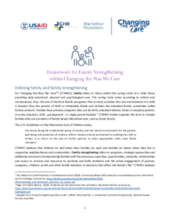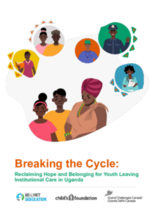Demographic Data
|
Sources: World Bank, UNICEF, UNDP HDR 2015, DHS 2013 |
Displaying 771 - 780 of 14551
These illustrations from Changing the Way We Care and the Government of Kenya showcase live community engagement sessions on how to develop Kafaalah messages and promote Kafaalah for family-based care.
This handbook is a summarized, user-friendly version of the operating procedures for alternative family- and community-based care options. It provides an overview of each type of care, key considerations, and the process followed for placement. The handbook aims to provide an easy and quick reference to critical information and “how to” about alternative family- and community-based care placements.
This data collection exercise was commissioned to assess the different types of Kafaalah care arrangements practiced by families and communities in Kilifi, Kenya. It affirms that Kafaalah is a widely known and practiced form of care among the Muslim community in Kilifi County.
This guide framework describes how CTWWC employs its family strengthening approach.
Join this webinar to learn about the findings from the Contextual Safeguarding Across Borders (CSAB) project, a two-year study ran by the Contextual Safeguarding research programme at Durham University and funded by Porticus Foundation. This research sought to understand the applicability and feasibility of Contextual Safeguarding in international contexts.
This webinar will focus on Family Separation Prevention. Three experiences from countries in the region will be presented, where public authorities and their teams will share their advances and pending challenges in policies and family support programs.
The Biden administration announced a mix of final and proposed rules on child welfare policy today that cover the placement of foster youth with relatives, legal representation for parents and children involved with the system, and the placement of LGBTQI+ youth in foster care.
The objective of this webinar was to present the best practices learnt in the implementation of the youth wellbeing project which focused on integrated mental health and wellbeing support for youth and particularly young people with lived experience of care.
The objective of this webinar is to present the best practices learnt in the implementation of the youth wellbeing project which focused on integrated mental health and wellbeing support for youth and particularly Young People with Lived Experience of Care.
Advancements in Child Protection Administrative Data and Solutions for Tackling Child Exploitation and Abuse




